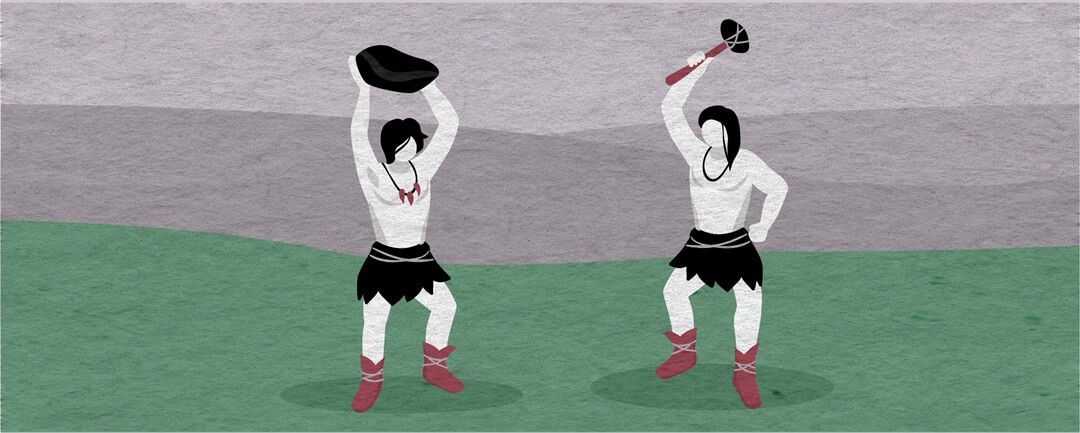

A common phenomenon surrounding the question of Palestine is that many seem to be under the impression that the “conflict” is ancient, and has been raging on for thousands of years. This is quite far from the truth, as the Palestinian question is quite modern, relatively speaking. There is virtually unanimous scholarly consensus that it certainly doesn’t extend thousands of years into the past. The roots and causes of the Palestinian question can be traced quite clearly, [You can read more about this here] should you be interested in learning about them in detail.
To briefly recap, the beginning of the question of Palestine is rooted in the Zionist movement, and its goal of colonizing Palestine to establish a Zionist settler ethno-state there. The first Zionist conference took place at the very end of the 19th century (1897), hardly ancient history. However, while it’s true that this conference marked a turning point in the organization of Zionist settlement in Palestine, there were earlier attempts by Zionist “pioneers” to settle in Palestine, such as Haim Chisin, but none of these attempts predated the Zionist movement by more than a few decades. It is also worth noting that at the time, the entire concept of nation states was a relatively novel idea, especially so in the Middle East.
In some of the more extreme versions of this misconception, some even go further to say that the whole region has been at war since time immemorial, and the question of Palestine is just an extension of that. This is the result of an Orientalist understanding of the Middle East which coalesces various political actors with diverse ideologies, contexts, motivations and goals into one chaotic mass at war with itself, where no differentiation can be discerned. Consequently, the Middle East becomes an exceptional arena for bloodshed and barbarity. Naturally, this same standard is never applied to Europe, for example, which was responsible for some of the most bloody and destructive wars in human history, neither is it applied to the various settler colonies around the globe which built their wealth and power on slavery and genocide.
When viewed in this manner, all grievances and conflicts in the area become ancient, and petty, with no logic or context behind them. All actors become irrational; it flattens over struggles and equalizes all parties. Suddenly, there are no oppressors or oppressed, no colonists or colonized. Resistance becomes identical to domination, and everything is dismissed as illogical and undifferentiated violence typical of the backwards peoples inhabiting the region.
This shallow analysis of the question of Palestine serves multiple functions; First, it is an attractive and easy way to comment on the situation without actually saying anything or taking a side. It is convenient because it spares you the need to do any research or take a stance while simultaneously morally elevating yourself over the “backwards” people in the region. This is done in an attempt to project a false image of understanding or nuance.
However, more nefariously, this talking point can serve to justify brutal Israeli practices by appealing to a false historicism; since Israel is in such a “bad neighborhood” which has always been governed by exceptional barbaric violence, Israel is forced to return in kind even if it didn’t want to. After all, Israel must be tough to survive in such a region, and any measure it takes is justified. Indeed, how could we condemn Israel for its domination of Palestinians when Arabs also kill other Arabs on the daily? It’s just how things work in the Middle East, they reason.
The parallels to the racist “Black on Black violence” arguments on Turtle Island are quite apparent. They both rely on a false, decontextualized, shallow and reductive understanding of the struggles at hand to shift blame onto the victims.
Regardless of how and when this “perpetual ancient warfare” talking point is used, it is a sure sign that the person practicing it is misinformed at best, or that they are purposefully being intellectually dishonest in an attempt to absolve Israel of its atrocious human rights record. In either case, it is not a claim that can withstand any scrutiny, especially when it is retroactively employed to analyze a struggle against settler colonialism in an era before these concepts were even invented.
So no, the question of Palestine is not some ancient blood feud between eternally warring peoples, it is a recent struggle resulting from settler colonialism infused with reactionary ethnonationalism, both relatively new concepts originating in the last couple of centuries. The analysis of the question of Palestine through any other lens will produce a flawed and misleading understanding of the facts on the ground and will result in shallow and ahistorical interpretations of the region as the one discussed above.

- Hjelm, Ingrid, et al., eds. A New Critical Approach to the History of Palestine: Palestine History and Heritage Project 1. Routledge, 2019.
- Masalha, Nur. Palestine: A Four Thousand Year History. Zed Books Ltd., 2018.
- Zureik, Elia. Israel’s colonial project in Palestine: Brutal pursuit. Routledge, 2015.
- Khalidi, Rashid. The Hundred Years’ War on Palestine: A History of Settler Colonialism and Resistance, 1917–2017. Metropolitan Books, 2020.
- Nur, Masalha. Expulsion of the Palestinians: The Concept of” transfer” in Zionist Political Thought, 1882-1948. Institute for Palestine Studies, 1992.
- Flapan, Simha. The birth of Israel: Myths and realities. London: Croom Helm, 1987.
- Pappe, Ilan. The ethnic cleansing of Palestine. Simon and Schuster, 2007.
- Pappe, Ilan. Ten myths about Israel. Verso Books, 2017.

